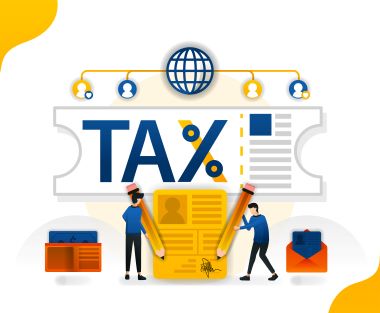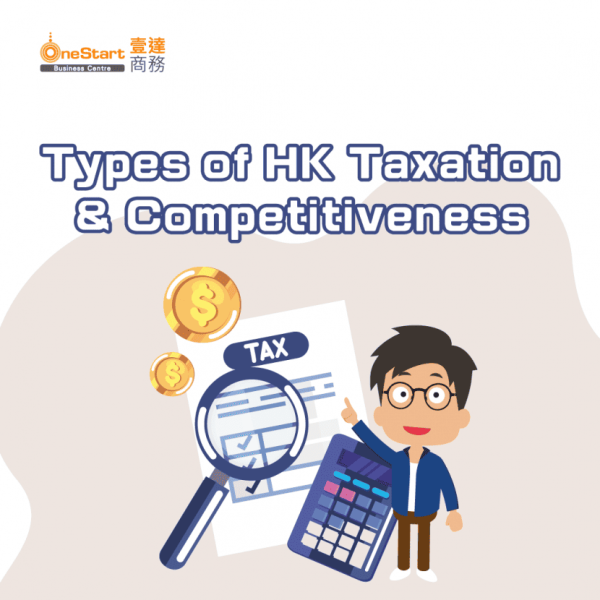Related Article:
When to File Taxes? Decoding the Hong Kong Company Tax Filing Schedul
Profits Tax in Hong Kong Explained, 3 Tips for Easy Tax Return
Table of contents |
Hong Kong’s attractiveness as a global business hub stems from its “simple, transparent, and low-rate” tax policy and robust legal system. The absence of inheritance and capital gains taxes further enhances Hong Kong’s competitive edge in the international business arena. This comprehensive guide will provide detailed insights into Hong Kong’s tax system, its key features, major tax types, and how to leverage its tax advantages for both corporations and individuals.
1. Key Features of Hong Kong’s Tax System
Simplicity and Transparency
Hong Kong’s tax system adheres to the Territorial Source Principle, taxing only income sourced within Hong Kong. Compared to more complex tax regimes in other countries, Hong Kong’s system is relatively transparent with clear tax laws, minimizing disputes. The absence of multiple tax layers allows taxpayers to pay based on income, avoiding additional taxes on assets and consumption activities, thus greatly enhancing the efficiency of tax procedures.
Low Tax Rate Advantage
Hong Kong boasts one of the world’s lowest tax rates. Unlike many countries, Hong Kong does not tax individuals on offshore income, only levying taxes on Hong Kong-sourced income. This territorial taxation principle significantly reduces the tax burden. Currently, the profits tax rate is 16.5{4aef313b8f7ebc204564f058185907a297300fd688fd14bc5dcad278cd3f80a3} on corporate income, while the maximum salaries tax rate is 17{4aef313b8f7ebc204564f058185907a297300fd688fd14bc5dcad278cd3f80a3}. Compared to countries where tax rates often exceed 30{4aef313b8f7ebc204564f058185907a297300fd688fd14bc5dcad278cd3f80a3}, Hong Kong’s tax system is particularly attractive to foreign businesses.
No Capital Gains Tax or Consumption Tax
Hong Kong does not impose capital gains tax. No tax is payable on capital gains from the sale of stocks, properties, or other investments. The absence of consumption tax further enhances Hong Kong’s appeal as an ideal investment and business environment.

2. Major Types of Taxes in Hong Kong
While Hong Kong’s tax system is known for its simplicity, taxpayers should not be complacent. A thorough understanding of various tax types is crucial for legal tax planning and avoiding unnecessary tax risks. Here’s a detailed overview of Hong Kong’s main tax types and their key points.
Profits Tax
This is the primary tax levied on corporate income in Hong Kong, applicable to all profits arising in or derived from Hong Kong. The first HK$2,000,000 of profits is taxed at 8.25{4aef313b8f7ebc204564f058185907a297300fd688fd14bc5dcad278cd3f80a3}, with any amount exceeding HK$2,000,000 taxed at 16.5{4aef313b8f7ebc204564f058185907a297300fd688fd14bc5dcad278cd3f80a3}. This two-tiered tax rate structure benefits small and medium-sized enterprises, encouraging more entrepreneurs and foreign companies to establish a presence in Hong Kong.
Salaries Tax
This tax applies to wages and allowances earned by individuals in Hong Kong. Tax rates range from 2{4aef313b8f7ebc204564f058185907a297300fd688fd14bc5dcad278cd3f80a3} to 17{4aef313b8f7ebc204564f058185907a297300fd688fd14bc5dcad278cd3f80a3}. Hong Kong also offers annual personal allowances to alleviate the tax burden.
Stamp Duty Ordinance
Stamp duty is levied on specific transactions such as the purchase of stocks and properties. When buying property in Hong Kong, both parties must pay a certain percentage of stamp duty. Depending on the property value, the tax rate ranges from 1.5{4aef313b8f7ebc204564f058185907a297300fd688fd14bc5dcad278cd3f80a3} to 4.25{4aef313b8f7ebc204564f058185907a297300fd688fd14bc5dcad278cd3f80a3}. Additionally, the Hong Kong Stock Exchange imposes a 0.13{4aef313b8f7ebc204564f058185907a297300fd688fd14bc5dcad278cd3f80a3} stamp duty on stock or share transactions.

3. International Competitiveness
Hong Kong maintains a strong competitive edge on the international stage. The following analysis examines Hong Kong’s tax system advantages from the perspectives of international comparison and attracting foreign investment
Tax Comparison with Other International Financial Centers
Compared to other international financial centers like London and New York, Hong Kong offers lower tax rates and a simpler, more transparent tax system. For instance, the maximum personal income tax rate in the UK can reach 45{4aef313b8f7ebc204564f058185907a297300fd688fd14bc5dcad278cd3f80a3}. The US also imposes a global income tax, with individual income tax rates peaking at 37{4aef313b8f7ebc204564f058185907a297300fd688fd14bc5dcad278cd3f80a3}. In contrast, Hong Kong’s low tax rates, absence of global income tax, and simple tax system undoubtedly enhance its competitiveness in the international financial arena.
Advantages in Attracting Foreign Investment
Hong Kong’s territorial tax system attracts numerous multinational corporations. Companies are not required to pay profits tax on overseas income, allowing for more flexible global fund allocation and improved operational efficiency. Combined with Hong Kong’s well-developed financial infrastructure, free foreign exchange policy, and efficient international trade environment, these factors make it an ideal location for global businesses.

4. Conclusion
Hong Kong’s tax system, characterized by its simplicity, transparency, low rates, and the absence of inheritance and capital gains taxes, has attracted numerous foreign companies and investors to establish operations in Hong Kong. As Hong Kong continues to solidify its position as an international financial center, the competitiveness of its tax system will further strengthen. For business owners and investors, a deep understanding and strategic utilization of Hong Kong’s tax advantages will contribute significantly to market success.
Click to WhatsApp OneStart:
Know More About Our Services:
 |
 |
 |














